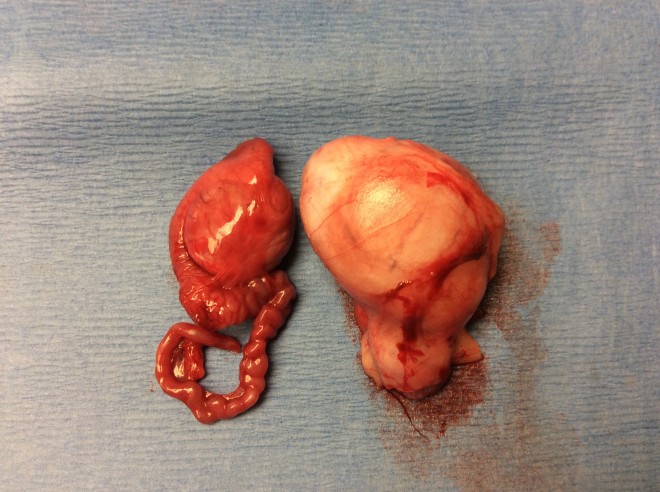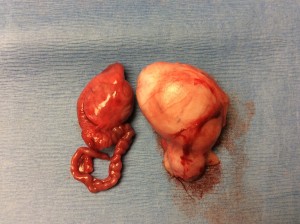
CRYPTORCHID – WHAT IS THAT???
“What is a cryptorchid?” “And what does that have to do with my pets?” “I’ll never need to know about that!” “I’ve never had one of my pets be cryptorchid.” – These are all things that pet owners may say when asked about cryptorchidism. Many don’t know what it is and the ones who are told their pets are a cryptorchid may not fully understand what that means. Cryptorchid means the absence of one or both testicles in the scrotum. So a dog or cat may be unilateral (only one testicle descended) or bilateral (neither testicle has descended). Now, why would a testicle not be in the scrotum you ask? When a puppy or kitten is developing, their testicles are internal, up near their kidneys. As they age the testicles migrate towards the scrotum until they are where they are supposed to be. For whatever reason, some testicles just don’t descend like they’re supposed to and they stay inside the body. So when they go to get neutered, the doctor has to search from the kidney to the scrotum to find the internal testicle(s). Why go searching at all? Yes, many people wonder why even go into the abdomen and search for that missing testicle. Just remove the one that made it to the scrotum. Well, here’s the main reason. One of the main reasons we neuter a pet is to reduce their chance of having testicular or prostate cancer. When a testicle is left internally, that testicle does not develop as it should and the chance of it becoming cancerous are very high. The internal body temperature is too high for testicles to act as they should so cryptorchid pet’s internal testicle(s) are much smaller and irregular in shape than a normal testicle. 
As seen in the above picture, on the right is a normal testicle and the left was a testicle that had not descended properly and was in the abdominal cavity. The left one is much smaller and deformed than the right one.
So neutering a cryptorchid pet is extremely important. The longer the testicle is left inside the body, the greater the chance of the pet developing cancer. If you have any questions or concerns please call our office at 410-848-3100/
